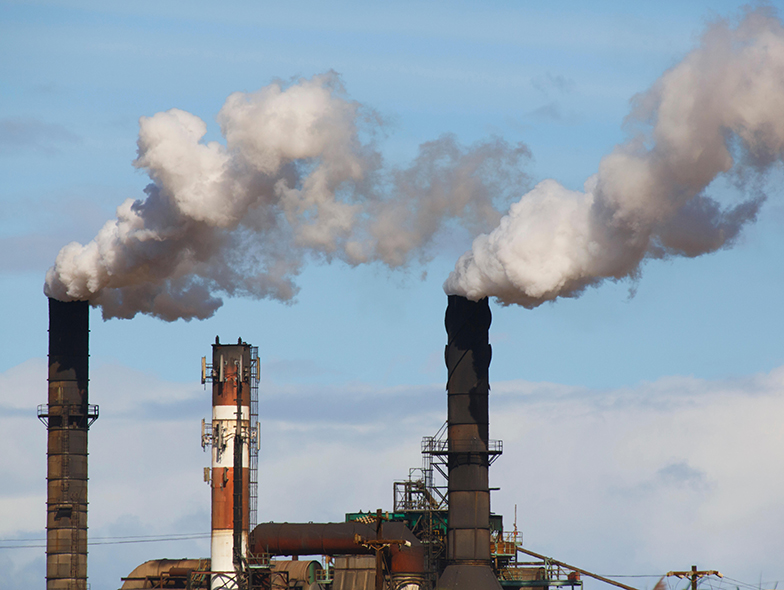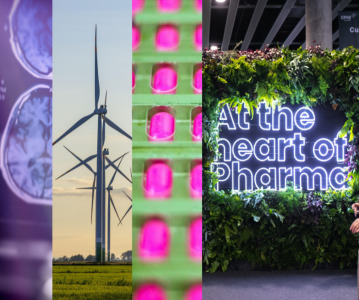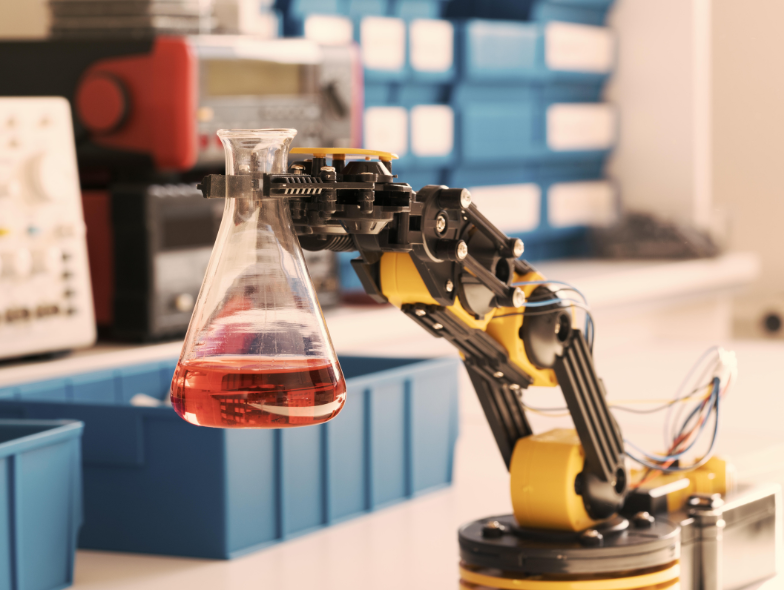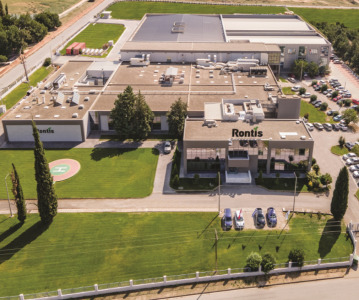How can pharma achieve ‘Net Zero’? Through driving change in pharma manufacturing

Through the entire product lifecycle – production, consumption and disposal – the pharma industry significantly impacts the environment.
As the industry gains a heightened awareness of its role in global emissions, many companies are setting ambitious targets to achieve carbon neutrality. Novartis has committed to achieving net zero across its value chain by 2040, as have Sanofi and GlaxoSmithKline by 2030.
There is much to be gained through reducing pharma’s ‘Environmental Factor’, as Girish Malhotra, President of EPCOT International, discussed in his recent blog post. Aside from the clear benefits to the environment, taking strides towards more sustainable practices will lower production costs, limit the burden of healthcare costs on authorities and protect public health.
So, where should pharma start?
According to Malhotra, API manufacturing and formulation companies have the greatest chance of meeting their climate goals by overhauling their manufacturing processes, though this presents its own set of challenges.
He suggests focusing on three core aspects: solvent reduction, yield improvement and efficient asset utilisation.
Three core pillars of green manufacturing
Solvent reduction
Pharmaceutical manufacturing is the most solvent-intensive of all chemical processes, and its reliance on solvents is commonly recognised as an environmental concern. These concerns generally relate to three areas: the source and synthesis of the solvent itself; its properties in use, including accidental discharge; and disposal.
By altering API manufacturing processes so that solvents are reduced and more waste solvents are recovered, companies stand a greater chance of reducing emissions and limiting ecological damage linked to discharge and disposal.
Yield improvement
When a process is improved to increase yield, waste is reduced and less solvents are required. Ultimately, yield improvement means the process is more efficient and fewer resources are required to achieve the end result - good news in terms of emissions.
Efficient asset utilisation
Efficient utilisation of assets not only reduces emissions from API manufacturing but lowers costs and ultimately makes the process more economically viable. Asset utilisation is closely linked with yield improvement and solvent reduction.
For example, making a process improvement that results in higher yield will not only reduce the number of solvents used, but also improve asset utilisation and batch cycle times. Whereas failing to iterate on existing methods will promote inefficiencies and poor asset utilisation.
Reaching ‘Net Zero’ - challenges to sustainable manufacturing
So how can API manufacturing and formulation companies reduce solvent use, improve yield and utilise their assets efficiently? According to Malhotra, sustainability needs to be considered at the onset of process development.
If pharmaceutical companies do not consider solvent reduction and yield improvement at the onset, it is extremely difficult for API manufacturers to do anything down the line.
For existing products, the biggest challenge to sustainability-focused process change lies in regulatory compliance. Overhauling the manufacturing process would require companies to seek regulatory reapproval for impacted products, which can be time-consuming and expensive. This presents a significant barrier to wide-spread, impactful change within the industry.
In a 2019 study looking at pharma emissions, the authors noted that process improvements are not an industry norm. They said the pharma industry has traditionally been ‘so profitable that it can afford to be extremely wasteful in its manufacturing processes’ and has ‘little economic incentive to optimise those high-footprint processes’.
Malhotra agrees. He says ‘nothing will change’ until API manufacturing and formulation processes are overhauled, but notes that issues like regulatory requirements, drug performance and cost are major blockers.
While pharma has been incentivised to take some strides towards ‘Net Zero’, it can be argued that the infrastructure (legal and financial) is not yet in place to propel industry-wide change in drug manufacturing.
Related News
-
News 5 big pharma companies agree to decarbonise operations in China
Following extensive talks, leading pharmaceutical companies sign an agreement to work with renewable energy companies to decarbonise their manufacturing supply chains in China and switch to renewables. -
News CPHI Podcast Series: The 2023 Retro – what have we learnt from the past year in pharma?
Welcome to the last episode of 2023! Digital Editor Lucy Chard is joined by her teammates in a special retrospective episode to close out the year. Guests Vivian Xie, Editor for CPHI Online and Tara Dougal, Content Director for Pharma, discuss their hi... -
News Pharmaceutical industry supports COP28 health stance in joint statement
As COP28 takes place over this week in Dubai, UAE, several bodies in the pharmaceutical and health industries have come together to announce support of key movements in sustainability in the sector, and to recognise sustainability as a health issue.&nb... -
News CPHI Barcelona 2023 – From the Floor
It's that time of year again - the biggest pharma event of the year comes to Spain this October for CPHI Barcelona 2023. Follow our Editors Vivian Xie and Lucy Chard as they worked their way through the conference, bringing highlights from content ... -
News CPHI Barcelona Annual Report illuminates industry trends for 2024
The CPHI Annual Survey comes into it’s 7th year to report on the predicted trends for 2024. Over 250 pharma executives were asked 35 questions, with their answers informing the industry landscape for the next year, spanning all major pharma marke... -
News CPHI Barcelona Sustainability Partner Interview – Procaps' improvement through innovation
Procaps, developer of pharmaceutical and nutraceutical solutions, medicines, and hospital supplies that reach more than 50 countries in all five continents, has partnered with CPHI Barcelona to support sustainability initiatives, to be highlighted at t... -
News The future of robotics in pharma: drug discovery to manufacturing
Robotics are starting to play a key role in the discovery and manufacturing of health and drug products, with numerous benefits, from cost reduction to increased sustainability, but there are challenges as well. -
News CPHI Barcelona Sustainability Partner Interview – Rontis' mindful management
Rontis Corporation, a leading supplier in the healthcare industry worldwide, has partnered with CPHI Barcelona to support sustainability initiatives, to be highlighted at the CPHI Worldwide event in Barcelona in October 2023.
Position your company at the heart of the global Pharma industry with a CPHI Online membership
-
Your products and solutions visible to thousands of visitors within the largest Pharma marketplace
-
Generate high-quality, engaged leads for your business, all year round
-
Promote your business as the industry’s thought-leader by hosting your reports, brochures and videos within your profile
-
Your company’s profile boosted at all participating CPHI events
-
An easy-to-use platform with a detailed dashboard showing your leads and performance







